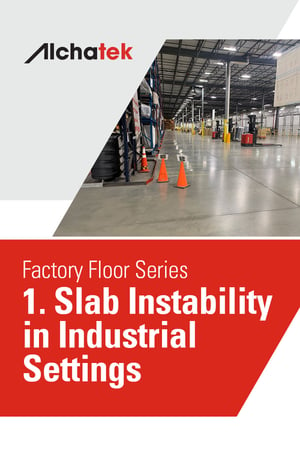
 In the world of manufacturing and industrial operations, the integrity of facility floors often takes a backseat to more immediate concerns like machinery efficiency, workforce productivity, and quality control. However, the stability of concrete slabs in manufacturing plants and factories serves as the foundation upon which these critical operations rest. This article aims to shed light on the importance of maintaining stable slabs and to introduce the top 10 concerns that plant and factory managers face when dealing with unstable or sunken slabs.
In the world of manufacturing and industrial operations, the integrity of facility floors often takes a backseat to more immediate concerns like machinery efficiency, workforce productivity, and quality control. However, the stability of concrete slabs in manufacturing plants and factories serves as the foundation upon which these critical operations rest. This article aims to shed light on the importance of maintaining stable slabs and to introduce the top 10 concerns that plant and factory managers face when dealing with unstable or sunken slabs.
The Importance of Stable Slabs
Stable slabs are not merely a matter of aesthetics or convenience; they are a critical component of an efficient and safe industrial environment. The floor serves as the platform for heavy machinery, the path for the transportation of goods, and the surface upon which employees spend countless hours. Any instability or unevenness in the floor can ripple through the entire operation, affecting everything from machinery alignment to worker safety.
The Top 10 Concerns
To understand the gravity of the issue, one must first recognize the specific concerns that plant and factory managers have when it comes to slab instability. These concerns are not generic issues that any commercial property manager would face; they are specialized, given the unique operational demands of industrial settings. Here is a summary of the top 10 concerns:
1. Operational Downtime
Unstable or sunken slabs can halt or slow down production lines, leading to significant operational downtime. This directly impacts output and revenue.
2. Equipment Damage
Heavy machinery and automated systems are sensitive to floor irregularities. Uneven flooring can cause misalignment or even damage to these expensive assets.
3. Worker Safety
Industrial settings often involve the movement of heavy goods and the operation of large machinery. Uneven floors can pose tripping hazards or lead to accidents involving forklifts or other mobile equipment.
4. Quality Control
In manufacturing, even minor deviations can result in product defects. Unstable slabs can affect the precision of manufacturing processes, thereby compromising quality control.
5. Regulatory Compliance
Factories are subject to stringent regulations, including OSHA standards in the United States. Floor irregularities can lead to non-compliance, resulting in fines and legal repercussions.
6. Utility Infrastructure
Sunken slabs can disrupt embedded utility lines such as electrical conduits or plumbing, affecting essential services within the plant.
7. Load Distribution
Manufacturing plants often have areas where heavy materials are stored. Uneven or unstable slabs can lead to improper load distribution, risking structural integrity.
8. Repair Costs
The financial burden of repairing unstable slabs can be significant, especially if the issue has led to secondary problems like equipment damage or utility disruption.
9. Scalability
As plants expand or reconfigure, the flooring needs to be adaptable. Unstable slabs can severely limit the ability to scale operations or reorganize the production layout.
10. Environmental Impact
Certain methods of slab repair can be environmentally unfriendly. Managers have to consider the ecological impact, especially if the plant is ISO 14001 certified or aims to be sustainable.
Scope of the Series
This article serves as the first in a four-part series that will delve deeper into each of these concerns. Subsequent articles will explore the operational and financial implications, safety and regulatory aspects, and technical solutions for addressing slab instability. The series will also provide actionable insights, best practices, and equipment recommendations for maintaining the integrity of industrial floors.
The Role of Polyurethane Solutions
While this article serves as an introduction, it's worth noting that one of the most effective solutions for addressing many of these concerns is the use of polyurethane for concrete leveling and soil stabilization. Polyurethane offers a quick, durable, and cost-effective method for repairing slabs, and it will be discussed in detail in the final installment of this series.
Key Takeaways
The stability of slabs in manufacturing plants and factories is not a trivial matter; it's a critical component that affects multiple facets of industrial operations. From operational efficiency and worker safety to regulatory compliance and financial implications, the concerns are numerous and significant. Proactive maintenance and repair of slabs are not just best practices; they are necessities for maintaining a competitive edge in today's industrial landscape.


